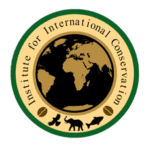Institute for International Conservation
Past and Present Staff
Current IIC Staff
Jason Rhoades, Faculty Co-Director
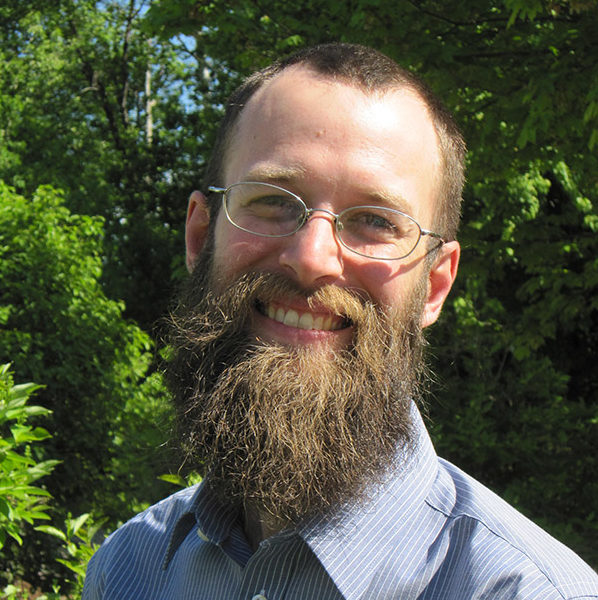
In my teaching, research, and work as a practitioner, I focus on fostering grassroots engagement at the community level to create positive social and environmental outcomes. As faculty in the Environmental Studies Department at Antioch University New England, I teach courses on political economy, sustainability, leadership, service learning, and project management. In addition to co-directing the Institute for International Conservation, I also direct the International Service Program that enables students to combine their master’s degree study with Peace Corps service. In the spring of 2019, I founded the Alliance for Youth Climate Leadership at Antioch University New England, which seeks to support the next generation of climate advocates to lead, collaborate, and innovate for a just, resilient, and thriving planet. My research centers on providing meaningful opportunities for marginalized groups to engage in participatory planning and decision-making. I earned my PhD in Environmental Studies at Antioch in 2016. Prior to joining Antioch, I held a variety of positions in the environmental field, including serving as a Peace Corps volunteer in the Republic of Armenia.
Michael Akresh, Faculty Co-Director
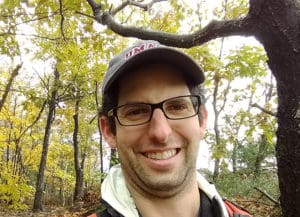
I'm excited to be the co-director of the new and expanded IIC. My primary research topics include conservation and ecology of birds in The Caribbean, the effects of forest management on wildlife populations and communities, full annual cycles and seasonal interactions in migratory birds, and the interaction between natural history and citizen science. I teach a number of classes, including an ecology and conservation field studies trip in The Bahamas. I look forward to working with students in and outside of IIC to promote international conservation and help students develop a strong foundation of skills that they can use in future roles as environmental professionals.
Joshua Arroyo Torres, Manager
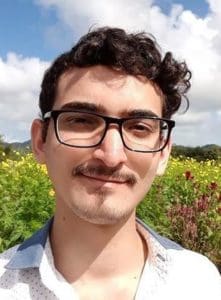
Joshua Arroyo-Torres has always been close to nature since his early years. During his undergraduate education, studying Social Sciences, Psychology and Cooperativism at the University of Puerto Rico Río Piedras Campus, Arroyo got involved with different student organizations that mainly focused on environmental education and conservation. His involvement in extracurricular experiences related to the environmental cause inspired him to become an environmental professional and activist. As part of his engagement with the Sierra Student Coalition, he held the roles of Trainer and, later on, Director for the youth environmental leadership program of Puerto Rico Sprog. He has also worked with Green-PR Environmental Stewardship program at a community in Río Piedras on a project related to sustainable materials management. Arroyo moved from Puerto Rico to Keene, New Hampshire for pursuing a MS degree in Environmental Studies, Advocacy for Social Justice and Sustainability and a certificate in Conservation Psychology at Antioch University New England. Currently, Arroyo is coordinator of Landfill Diversion, an environmental workgroup with Mentes Puertorriqueñas en Acción (MPA); founding organizer of the LGBTQIA+ group Intersectional Community Collective (ICC); and is Manager of the Institute for International Conservation (IIC). His career interests are focused on working in the field of sustainable materials management and waste reduction while leveraging insights from conservation psychology to inform the development and implementation of programs and policies aimed at promoting pro-environmental behaviors and creating systemic change for waste reduction.
For more information about Joshua, click here
Nate Irwin, Staff
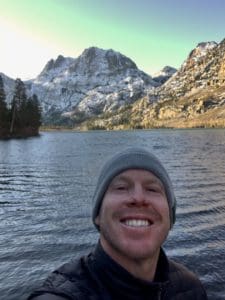 I grew up, and live in Santa Barbara, California, and have a deep appreciation and reverence for the natural world. I received my BA in Liberal Studies, with a focus in Environmental Studies, from Antioch University, Santa Barbara. I am currently pursuing a Master's Degree in Environmental Studies from Antioch University, New England. I am passionate about reconnecting people to nature and have spent countless hours painting and writing about endangered species. My favorite place in the world is the Eastern Sierra. Every time that I go there I am humbled by the sheer enormity of the mountains and how they have a way of immediately putting me in my place as a small part of a much larger world. I am excited to bring a background in art, writing, and environmental advocacy to the IIC team.
I grew up, and live in Santa Barbara, California, and have a deep appreciation and reverence for the natural world. I received my BA in Liberal Studies, with a focus in Environmental Studies, from Antioch University, Santa Barbara. I am currently pursuing a Master's Degree in Environmental Studies from Antioch University, New England. I am passionate about reconnecting people to nature and have spent countless hours painting and writing about endangered species. My favorite place in the world is the Eastern Sierra. Every time that I go there I am humbled by the sheer enormity of the mountains and how they have a way of immediately putting me in my place as a small part of a much larger world. I am excited to bring a background in art, writing, and environmental advocacy to the IIC team.
Rosanna Gargiulo, Staff
 Rosanna (she/her) lives in Maine with her family and the perfect number of dogs (five, in case you were wondering). She holds an MFA in Writing from Vermont College of Fine Arts. Her award-winning work has appeared or is forthcoming in New South, Sweet: A Literary Confection, Bacopa Literary Review, Tahoma Literary Review, and elsewhere. She is the founding online Editor and Publisher of The Maine Review, a tri-annual nonprofit literary magazine and home of Environs, an environmental writing contest.
Rosanna (she/her) lives in Maine with her family and the perfect number of dogs (five, in case you were wondering). She holds an MFA in Writing from Vermont College of Fine Arts. Her award-winning work has appeared or is forthcoming in New South, Sweet: A Literary Confection, Bacopa Literary Review, Tahoma Literary Review, and elsewhere. She is the founding online Editor and Publisher of The Maine Review, a tri-annual nonprofit literary magazine and home of Environs, an environmental writing contest.
Former IIC Staff
Precious Ozoh, Staff
 When growing up in West Africa, Nigeria I loved the outdoors. I enjoy spending my time playing soccer, with family members, and being in nature. My uncle and I would go out every weekend to a forest about five hours away from my home. One day, on our adventure we came across a bittersweet scene: in the forest we encountered a baby patas monkey next to his dead mother. It was an impactful moment in my childhood to witness this in person. My uncle suggested we take him home and I screamed YES before he could even complete his sentence. My love for animals, especially wild animals, inspired me to pursue a B.S in Environmental Studies at Gettysburg College. After undergrad, I enrolled at Antioch University New England in Environmental Studies MS program concentrating in Conservation biology. My career interest is to work in the sector of conservation organizations after graduating from AUNE. I am excited to be a part of the Institute for International Conservation and to work with incredible colleagues here at AUNE.
When growing up in West Africa, Nigeria I loved the outdoors. I enjoy spending my time playing soccer, with family members, and being in nature. My uncle and I would go out every weekend to a forest about five hours away from my home. One day, on our adventure we came across a bittersweet scene: in the forest we encountered a baby patas monkey next to his dead mother. It was an impactful moment in my childhood to witness this in person. My uncle suggested we take him home and I screamed YES before he could even complete his sentence. My love for animals, especially wild animals, inspired me to pursue a B.S in Environmental Studies at Gettysburg College. After undergrad, I enrolled at Antioch University New England in Environmental Studies MS program concentrating in Conservation biology. My career interest is to work in the sector of conservation organizations after graduating from AUNE. I am excited to be a part of the Institute for International Conservation and to work with incredible colleagues here at AUNE.
Alexis De Santi, Staff
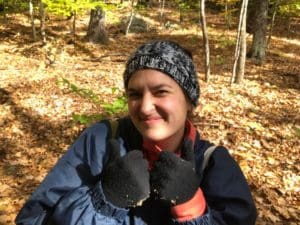 From childhood to college, the natural world has been a large part of my life. I received my B.S. in Environmental Science with a Concentration in Marine Science from the University of Delaware. During my undergraduate studies, I was involved in many environmental organizations that promoted education, conservation, restoration, and the importance of collaboration with others. Additionally, I had an amazing professor who helped further my love for the marine realm. Following graduation, I decided to continue my education at Antioch University New England and study Conservation Biology and Conservation Psychology. I am looking forward to expanding my knowledge and reach into the international sphere with IIC. Outside of school, I love hiking, backpacking, running, and reading. Hammocking with a good book just might be my favorite pastime!
From childhood to college, the natural world has been a large part of my life. I received my B.S. in Environmental Science with a Concentration in Marine Science from the University of Delaware. During my undergraduate studies, I was involved in many environmental organizations that promoted education, conservation, restoration, and the importance of collaboration with others. Additionally, I had an amazing professor who helped further my love for the marine realm. Following graduation, I decided to continue my education at Antioch University New England and study Conservation Biology and Conservation Psychology. I am looking forward to expanding my knowledge and reach into the international sphere with IIC. Outside of school, I love hiking, backpacking, running, and reading. Hammocking with a good book just might be my favorite pastime!
Alec Woolf, Staff
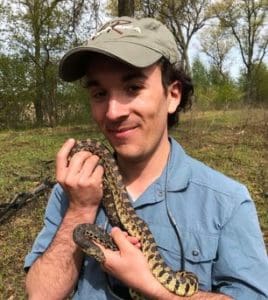
Growing up in southeastern Massachusetts, Alec spent most of his time catching and learning about the different critters in his neighborhood. At times he even became a surrogate parent to young birds and mammals. Alec followed his passion for animals to college where he obtained his B.S in Wildlife & Fisheries Biology. In undergrad, he developed an interest in lesser-known species of conservation concern and began to work as a volunteer, intern, and later a technician on various projects involving freshwater turtles, bats, and birds. A trip to Costa Rica where he would shadow naturalists gave Alec a deeper understanding of tropical ecology and conservation.
Following several years of gaining valuable field experience, he enrolled at Antioch University New England. His goal is to obtain an M.S in Environmental Science with a concentration in Conservation Biology. Upon graduation, he aims to begin his research projects at a nonprofit organization. He can often be seen running for miles and kayaking with a few friends at a nearby pond. Alec is excited to join IIC in his first year at Antioch and work with and gain experience with new colleagues.
Andrea Centola, former staff
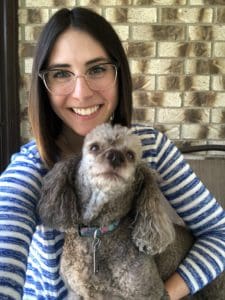 I grew up in upstate New York where I received my B.S. in Environmental Science from SUNY Brockport. During my time at school, it was suggested that I volunteer with a local animal group to get a feel for what I wanted to do with my degree. I was able to work in a bird of prey sanctuary that housed injured raptors and that is where I fell in love with birds. Over the next several years I took this newfound love and began field work that incorporated avian research with management of our natural areas. These included tropical areas like Koa-dominated forests in Hawaii and the subtropical mangroves in southern Florida. I am a master's candidate in the Environmental Studies Department with a concentration in Conservation Biology at AUNE. I am excited to join IIC promoting the species that exist in our tropical ecosystems. When not birding, I can be found spending time with my adopted canine daughter, Bella.
I grew up in upstate New York where I received my B.S. in Environmental Science from SUNY Brockport. During my time at school, it was suggested that I volunteer with a local animal group to get a feel for what I wanted to do with my degree. I was able to work in a bird of prey sanctuary that housed injured raptors and that is where I fell in love with birds. Over the next several years I took this newfound love and began field work that incorporated avian research with management of our natural areas. These included tropical areas like Koa-dominated forests in Hawaii and the subtropical mangroves in southern Florida. I am a master's candidate in the Environmental Studies Department with a concentration in Conservation Biology at AUNE. I am excited to join IIC promoting the species that exist in our tropical ecosystems. When not birding, I can be found spending time with my adopted canine daughter, Bella.
Ashley Bernard, Former Program Manager

Ashley grew up exploring the woods with her family and dogs in Plymouth, MA. Her love for animals, especially wildlife, led her to complete a B.S in Pre-veterinary Studies at UMASS Amherst. After this, she decided to pursue an M.S in Environmental Studies with a concentration in Conservation Biology at Antioch. Ashley is an aspiring wildlife biologist and is interested in disease ecology, conservation medicine, and ungulate ecology. She hopes her studies and experiences at Antioch will help her secure a job with a state wildlife agency post-graduation. In her spare time, Ashley can be found hiking around NH, hunting with her family, and drinking an insane amount of coffee. During her first year at Antioch, Ashley joined CTEC (now IIC) as the Education/Outreach Coordinator. Now, she is the Program Manager where she manages their budget and finances, places coffee orders, and oversees the duties of other work-study students. Her main goals are to provide a place for students to find opportunities regarding international conservation as well as foster the connections AUNE has to the international community.
Audrey Boraski, former CTEC/IIC Partnership/Opportunities Coordinator
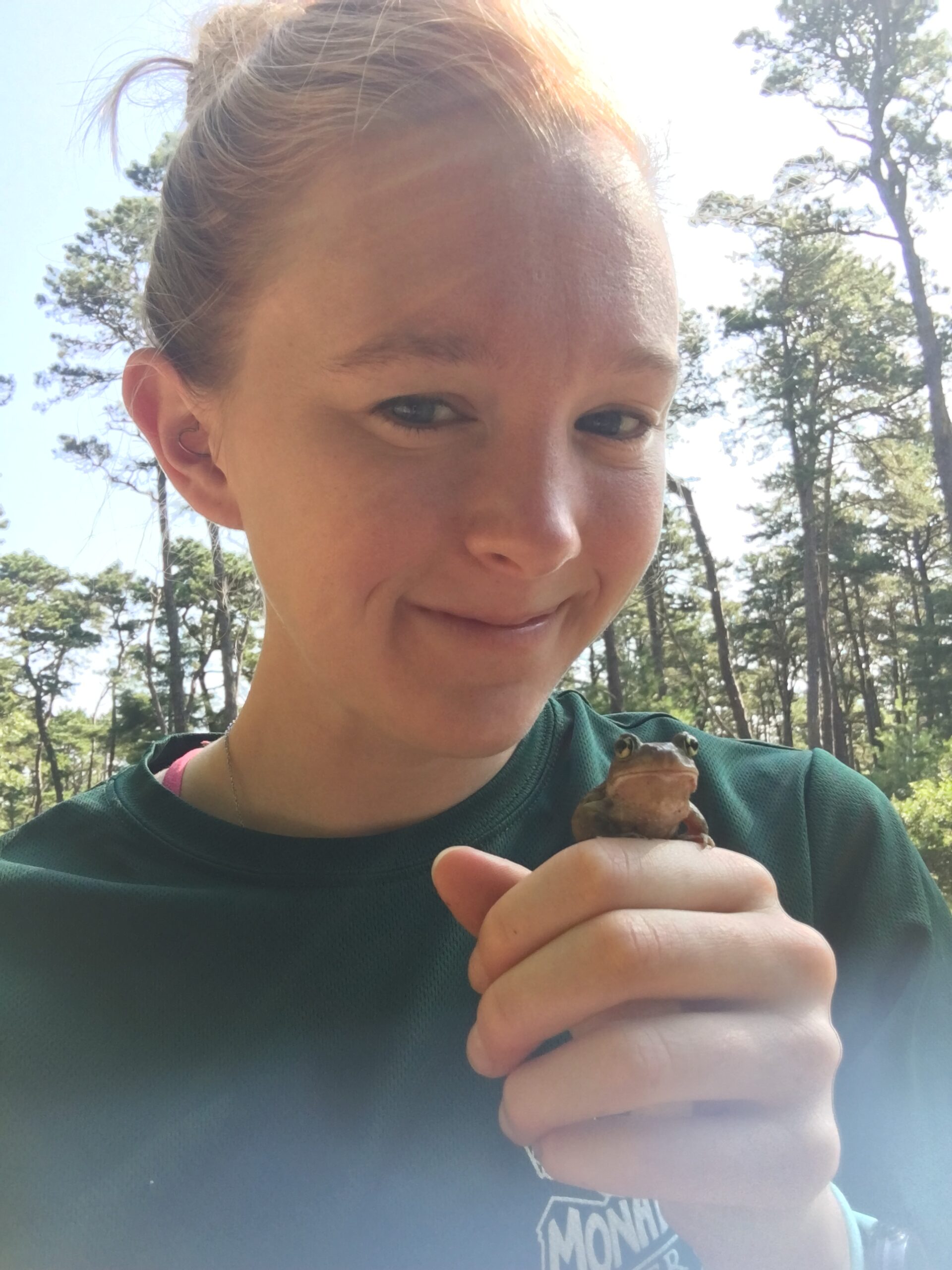 Growing up in the New England Audrey's love for all things outdoors was fostered by the dense forests and varying geographical features surrounding her home. She carried this love all the way to her collegiate studies earning a B.S. in Biology and a minor in Environmental Studies from Keene State College and is currently enrolled at Antioch University New England in their Environmental Studies MS program concentrating in Conservation Biology. Audrey Boraski is an aspiring wildlife conservation biologist particularly interested in reintroduction and translocation projects of endangered and at risk species. Her previous work has taken her from the wet, bug infested insides of the Great Dismal Swamp searching for woodpecker cavities to the contrasting sunny, warm dunes of Cape Cod looking for toad eggs. Outside of work and school Audrey can be found making time to read books for The Wildlife Center of Virginia’s Online Book Club, practice Spanish, or running around the many trails Western Mass has to offer. Amidst this all, her down time is taken very seriously by enjoying a warm drink at a local tea/coffee shop and welcomes all to join.
Growing up in the New England Audrey's love for all things outdoors was fostered by the dense forests and varying geographical features surrounding her home. She carried this love all the way to her collegiate studies earning a B.S. in Biology and a minor in Environmental Studies from Keene State College and is currently enrolled at Antioch University New England in their Environmental Studies MS program concentrating in Conservation Biology. Audrey Boraski is an aspiring wildlife conservation biologist particularly interested in reintroduction and translocation projects of endangered and at risk species. Her previous work has taken her from the wet, bug infested insides of the Great Dismal Swamp searching for woodpecker cavities to the contrasting sunny, warm dunes of Cape Cod looking for toad eggs. Outside of work and school Audrey can be found making time to read books for The Wildlife Center of Virginia’s Online Book Club, practice Spanish, or running around the many trails Western Mass has to offer. Amidst this all, her down time is taken very seriously by enjoying a warm drink at a local tea/coffee shop and welcomes all to join.
Just over this past year, Boraski joined the Institute for International Conservation at Antioch as the Partnership/Opportunities Coordinator to assist the center with finding and maintaining good partnerships as well as grant opportunities for enrolled PhD and Masters students. Her main goal is to encourage and show students where to find relevant opportunities that are specific to their research and professional growth so it is a less stressful process. She hopes to help expand the inclusivity of the Institute with its new vision of being all world focused.
Kelsey Bearden, Program Manager, M.S. Candidate, Environmental Education, ESMS Program
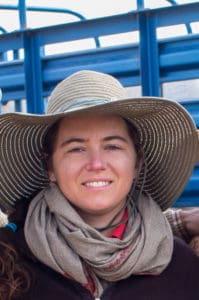
Kelsey is an Environmental Education master's student in the Environmental Studies program at Antioch. Kelsey's primary focus is on how to leverage agriculture for conservation goals and land and community health through regenerative practices and education. Her interest in the tropics began as a child in Mexico, and she has since spent time in Indonesia, Costa Rica, India, among other countries. This exposure deepened her appreciation for issues of tropical conservation, sustainable livelihoods, and cultural integrity in the face of climate change and globalization. Kelsey was previously CTEC's Education Coordinator and is invested in upholding CTEC’s successful history of providing opportunities for people to learn and connect through tropical issues. She hopes to expand CTEC’s reach to actively include ‘non-scientists’ in the community. Kelsey received her BA in Biology and Spanish from the University of Alaska Fairbanks.
Whistle Barkan, Information Coordinator, M.S. student, Science Teacher Certification, ESMS Program
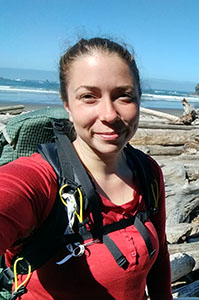
Whistle is an Environmental Studies MS student in the Secondary Science Teaching Licensure program. At Antioch, Whistle has focused on learning to build robust and diverse educational communities and to apply inquiry-based science pedagogy to a community learning model. While completing her BS in Biology and Entomology at the University of Illinois at Urbana-Champaign, Whistle spent time in Fortuna Reserve and Barro Colorado Island in Panama, studying tropical forest community ecology. Later, she worked with Costa Rican obligate parasitoid braconid systematics and vector-borne disease ecology. Her experiences in the tropics informed both her philosophy of scientific research and of science teaching. The incredibly rich and complex biological systems Whistle studied gave her a new perspective on how human and non-human communities interact within and between each other and showed how specialization, diversity, and redundancy can scaffold sustainable systems. She would love to talk your ear off about parasitoid wasp life cycles. As CTEC'92s Information Coordinator, Whistle is excited to support communications with the Antioch community and to build connections with students.
Lance Caldwell, Development Coordinator, M.S Candidate Conservation Biology, Peace Corps Master’s International Program
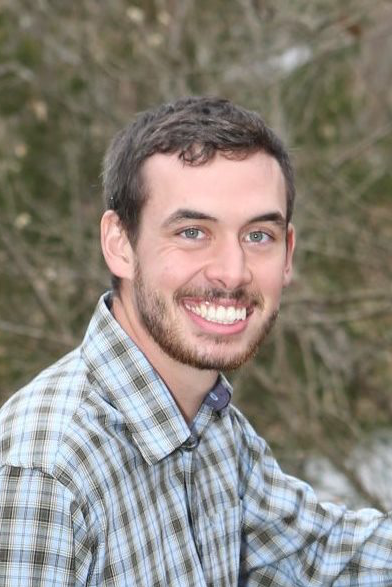
Lance Caldwell is a current Conservation Biology Masters student in the International Service Program. While working with Peace Corps in 2016-2018, he focused on Natural Resource Management, Community Development, and Environmental Education in his host community in Guyana, South America. He has a deep passion for the natural resources of the tropics and their sustainable management. Lance went to Arkansas Tech University for a degree in Wildlife Biology.
Current Students
Erasme Uyizeye, former CTEC Program Manager, PhD Student Environmental Studies
Erasme Uyizeye is a PhD Candidate in the Environmental Studies Department at Antioch University New England (AUNE), where he serves as Program Manager of the Center for Tropical Ecology and Conservation since 2015. Uyizeye received both his BS in Biology and MS in Biodiversity and Conservation from the University of Rwanda. He also holds an MS degree in Interdisciplinary Environmental Studies from AUNE. Uyizeye received ecological science-related certificates from the University of Koblenz–Landau in Germany, University of Cambridge in UK through Tropical Biology Association, and Peace Building & Conflict Transformation certificate from World Learning, School for International Training in Vermont USA. Uyizeye’s doctoral research seeks to understand effective techniques for assessment and monitoring of freshwater ecosystems using biological indicators, especially dragonflies. Uyizeye’s research interest expands to wetlands management and sustainable agriculture, riparian zone management, aquatic invasive species control, as well as understanding adaptation and mitigation strategies in response to the impact of global warming on aquatic ecosystems. Additionally, Uyizeye is currently collaborating with Carnivore and Coexistance Lab at University of Wisconsin–Madison to study post-civil war Rwandan nature restoration, focusing on Akagera National Park.
Mary Jo Austin, former CTEC Project Coordinator, PhD Student Environmental Studies
As an Environmental Studies doctoral student, Mary Jo plans on doing more primate conservation fieldwork in Africa. She has an MSc degree in Resource Management with a focus on primate conservation. For her thesis, she designed her own research project on the socioeconomics surrounding bushmeat hunting in SW Cameroon where she did her data collection. More recently, in 2014, she spent a year as research assistant doing chimpanzee habituation and other research in Loango National Park in Gabon. She is happy to be a part of the CTEC team and motivated to help facilitate the various fieldwork opportunities in the tropics for AUNE students.
Evan Craig, former CTEC Outreach Coordinator, PhD Student Environmental Studies
A Returned Peace Corps Volunteer, Evan is interested in mammal biodiversity and ecology in Ethiopia. From 2014 to 2016, Evan lived in the village of Quiha, Ethiopia where he worked as an Environment Sector Volunteer. During this time he worked alongside his community to develop local environmental outreach programs to support rural farmers and public school curriculum. For his primary project, Evan worked with faculty at Mekelle University to develop a four-week research expedition in Simien Mountains National Park to study small mammal communities and provide an opportunity for graduate and undergraduate students to gain hands-on experience. This transformative period in Ethiopia cultivated a passion for the country’s people, culture, and wildlife, and ultimately led to his decision to pursue a doctoral degree. As a Scientific Affiliate with the Field Museum of Natural History in Chicago, Evan continues to investigate Ethiopian mammal collections and develop collaborative research opportunities. Evan is a proud ‘Pointer’ and alumnus of University of Wisconsin-Stevens Point where he earned a bachelor’s degree in Wildlife Ecology.
Ashley Ronzio, former CTEC Research, and Project Assistant, PhD Student Environmental Studies
My interests include conservation biology, endangered species restoration, and disease ecology. Before starting the environmental studies PhD program, I graduated from Northeastern University with a Bachelor in Science degree in Psychology and from Tufts University with a Master’s degree in Infectious Disease and Global Health. While studying at Tufts, I took ecology courses and worked on a couple of research projects focused on wildlife conservation and tropical ecology. I became very interested in tropical disease ecology and conservation. I aspire to conduct research to implement effective conservation plans for endangered species. I am very excited to be a part of CTEC and learn more about this exciting field.
Sarah K. Cox, former CTEC Project Coordinator, M.S. Candidate Conservation Biology, A Return Peace Corps Master’s International Program
My main research focus is the current poaching crisis happening in Africa, especially in regards to the southern white and black rhino. This interest was really fueled by volunteer trips to Africa; most significantly, spending two weeks in Zimbabwe working with the International Anti-Poaching Foundation. My broader interests include megaherbivores as keystone species, and how human and environmental disturbances lead to mass extinctions. Prior to attending Antioch, I worked in the non-profit sector.
Graduated Students
Meghan Hoskins, Former CTEC Education Coordinator, M.S. Candidate Advocacy for Social Justice and Sustainability, Conservation Psychology Certificate, 2017.
My interests include climate change, conservation psychology, traditional ecological knowledge, participatory decision-making processes, biocultural diversity, arts and culture, ecological sustainability, and environmental leadership. Before coming to Antioch University New England, I graduated from Indiana State University with a Bachelor of Arts in Psychology, minors in Women’s Studies and Spanish, and certification in Sustainability Leadership. While I was at Indiana State I studied abroad in San José, Costa Rica at Universidad Veritas, where I took courses in Environmental Awareness and Sustainable Development, Spanish Translation, and Health Psychology. While I was in Costa Rica, I was amazed by the beauty of the tropics. Since then, I have been very passionate about tropical ecosystem conservation, especially tropical rainforest conservation. I aspire to work with indigenous communities to advance indigenous land rights and socially just conservation projects in the tropics.
Kira Yeomans, Former CTEC Development Coordinator, MS Candidate Self-Designed Studies Masters Candidate and Masters International, 2018.
Kira is designing her program to be a combination of climate change mitigation and social justice advocacy. Before coming to Antioch University she received her Bachelor's degree in Environmental Studies with a focus on ecology and conservation science. For the past 5 years, she has been working with the Department of Fish and Wildlife on the California Recreational Fisheries Survey and has enjoyed being out in the field collecting data and identifying, weighing, and measuring bottom fish. She developed a passion for supporting tropical ecological research at a young age, swimming in the ocean in Guam where she grew up, and developing a love for ocean species there. In 2011 she spent a month in Tanzania with the School for Field Studies conducting wildlife observations in the national parks as well human-wildlife conflicts. Her focus now is on advocating for the disadvantaged in hopes that everyone has the option and ability for a fulfilling life in a flourishing environment.
Emily Lund, Former CTEC Education Coordinator, M.S Candidate Conservation Biology, Peace Corps Master’s International Program, 2017.
I have had an infectious love for animals my whole life. My interests lie in conservation and the restoration of terrestrial species and their habitats, especially in edge effects/habitat fragmentation and species abundance/diversity before and after measurements of these effects. I’m also very interested in endangered species, protected areas, landscape restoration, and awareness. I am very passionate about the protection of the endangered Asian elephant and bringing awareness towards their tourism exploitation and cultural torture-training methods. In 2013 I traveled to Chiang Mai, Thailand, and worked at Elephant Nature Park. The sanctuary has rescued and rehabilitated dozens of Asian elephants. This trip opened my eyes and my heart to the idea of working in tropical areas to better the environment and the animals that reside there. Prior to entering Antioch’s Master’s International Program, I received my Bachelor’s in Environmental Science and Policy at California State University Long Beach in 2014. After completing my service with the Peace Corps and completing my Master's, I hope to find work collecting data internationally, specifically involving habitat preservation projects or working in the film industry.
Adriana (Rocky) M. Casillas, Former CTEC Outreach Coordinator, M.S. Candidate Conservation Biology, 2016.
I have always been interested in the conservation of large African carnivores, specifically lions. Working in Africa has been my dream for a very long time, and when I made my first trip to this amazing continent in 2014 as a volunteer at Tembe National Elephant Park and saw my first lions, I knew I could never change my mind. Since then, I have made connections with various non-profit organizations throughout East Africa, including Action for Cheetahs in Kenya (ACK), with whom I partnered to conduct my thesis research this year (2015). The title of my thesis work was: “Actual Versus Perceived Predation: A Multi-method Approach to Understanding Human-Carnivore Conflict in Samburu, Kenya.” The goal of this study was to contribute new and useful information on carnivore visitation and attack rates at manyattas (Samburu homesteads). My specific objectives were to 1) Examine ‘actual’ versus ‘perceived’ conflict by comparing pastoralist interview reports with a camera trap and tracking evidence 2) Evaluate the effectiveness of two predator light deterrent systems (Green Rural African Development Lion Lights and Foxlights) in reducing carnivore visitation and attack frequency and 3) Encourage the active participation of local community members in the implementation of research methodology and the evaluation of this study’s overall approach. Human-carnivore conflict is a serious issue threatening the survival of many important predator species across Africa, as well as the livelihoods of the people that live with them. The need for non-lethal, innovative, inexpensive, and accessible solutions to reduce conflict deserves great attention and should be a priority for the conservation of large carnivores.
Katelynn Frei, Former CTEC Education Coordinator, MS Candidate Conservation Biology, 2014.
I have always been interested in small to medium-sized mammals both in tropical and desert areas. This interest started during my undergraduate studies at Angelo State University in west-central Texas. I worked with using remote-infrared camera traps to take mammalian surveys and to study habitat preferences between hog-nosed skunks and nine-banded armadillos. During the summer of 2012, I went on a trip to Costa Rica and Panama and used the camera traps for a continued survey on diurnal and nocturnal mammals. Since then, I have been interested in the distribution, habitat preferences, density, and conservation of nocturnal mammals. The skills that I am currently obtaining now and that I have learned in my undergraduate will help me provide further knowledge for conserving land for the mammals that have cryptic lifestyles.
My proposed master’s thesis will be to use remote infrared camera traps to assess the distribution, density, and diversity of nocturnal primates in the Albertine Rift of southeastern Africa.
McArd Joseph Mlotha, Former CTEC Program Manager, PhD Candidate Environmental Studies, 2018.
My interest includes advanced Geographical Information Science applications for environmental conservation and management. Specifically, I am interested in analyzing tropical ecosystems, Climate change impacts, land-use history, land use, and land cover change assessment linked to socio-economic analysis, landscape ecology, geo-database management, and teaching GIS/remote sensing related courses for natural resources management. Currently am working on vegetation mapping for Nyungwe National Park and analyzing land use/land cover change impacts upon ecosystem services in a montane tropical forest of Rwanda focusing on forest carbon assessment and mapping.
Adam Rusk, Former CTEC Research Coordinator MS Candidate Conservation Biology, 2013.
I have always been interested in large scale conservation and how humans fit in as a piece in the greater scheme. Pairing this with my interest in technology and its integration into conservation I have found my niche in geographic information systems, remote sensing, and quantitative analysis. During my undergraduate career, I was introduced to advanced analysis and modeling techniques and their play in understanding how organisms interact with the environment. Since then I have looked for more ways to understand large scale phenomena and collect big data to improve our interactions with the environment at a landscape scale. The opportunities I have at Antioch University New England and the skills I am developing for my thesis will allow me to integrate conservation and technology in a way that might inform management and conservation practices to an ever-larger spatial extent.
Apollinaire William, Former CTEC Program Manager, PhD Candidate Environmental Studies, 2018.
I am interested in participatory and action research, working with local communities and stakeholders at various levels, through interdisciplinary platforms, to address local environmental problems, within a framework of integrated watershed management, using various skills that include GIS and remote sensing, and hydrological modeling tools. I am also interested in empowering young scholars and women to address current environmental challenges through their active engagement in a research process, by providing them with the skills and tools needed to make their participation more effective. Climate adaptation and mitigation, food security, biodiversity conservation with a focus on primates, birds, and amphibians are at the core of my interests.
My research project is based in the northern province of Rwanda. A region that experiences frequent floods disasters. Food security in the region is at stake in the face of climate change, poverty, and the blooming population in the region. My research taps into local community groups’ and stakeholders' investigates perspectives with regards to the nature of climate change, approaches to better address the challenge for food security and biodiversity conservation. The research empowers local stakeholders by offering to them low-cost tools and skills needed locally for effective monitoring and analysis of climate change in the region and by engaging them through the whole process of the research.
